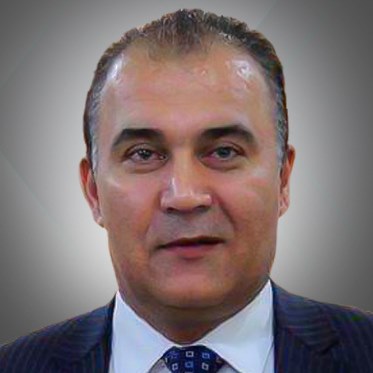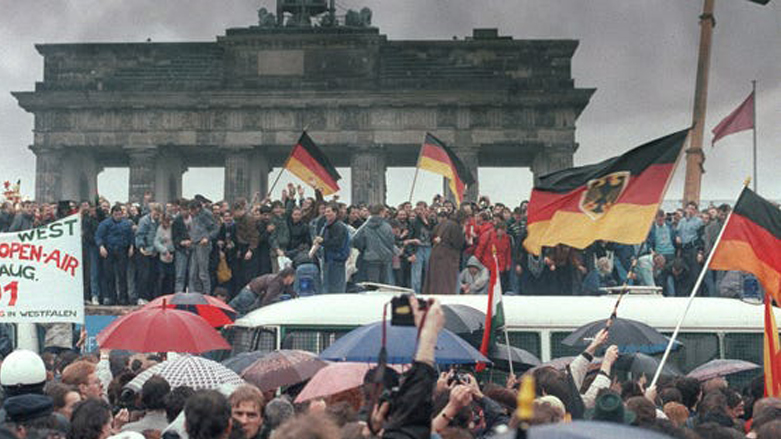
Awat Mustafa
Editor
The Good Nature and Heart of Germany

German citizens have many things to feel proud of: the classical and contemporary periods of German history have given much to the world. In the present day, outside of Germany, Germans are renowned for engineering the best fundamental essentials we use in our daily life. The efficiency and hardworking nature of the German people is impressive. Their skills and knowledge are their most outstanding contributions to humankind.
After the largest global devastation ever witnessed during World War II, no one anticipated the rapid recovery of the German people. The speed of the reconstruction at all levels across Germany, even from a mathematical standpoint, was by all means challenging. However, this expeditious rebirth was accomplished as a result of the will and commitment of the German people. Beyond collateral damage, Germany also suffered from sustained physical and mental trauma. Yet today, hardly anyone outside its borders is aware of this apart from the German people themselves.
In the past, Germany was a dominant military power, both on the European continent and beyond. Today, Germany is once again a leading world power. This time, however, it's not through the power of its military or the size of its economy or even the material wealth of individual citizens, but through its immense capacity for caring and compassion for others.
In the past decade, I have witnessed the efforts and humanitarian contributions of Germany to the world. When ISIS attacked Syria and Iraq, millions of people from both countries fled from their homelands and sought refuge in neighboring countries. The Kurdistan Region of Iraq was, and still is, a safe haven for almost a million people from Syria and other provinces of Iraq. Thousands of Yazidis were killed by the ISIS terrorist group purely because of their religious beliefs. Many of their children, especially women and girls, were kidnapped and sold as sex slaves. The rest fled to the Kurdish province of Duhok, where the majority of them still live in refugee camps.
Throughout those years, Germany - not just the German government, but also individual citizens - alongside charity organisations, churches, and civil society groups, showed an almost spontaneous desire to alleviate that suffering. It would have been hard, if not impossible, to have persevered without their help. The German government has funded many projects in the Kurdistan Region through GIZ, the German Agency for International Cooperation. These projects include schools, a water network, sanitation, and training to boost the capacity of localities. These projects have saved lives. The general consulate of Germany in Erbil has played a significant role in facilitating such efforts. In the meantime, German non-governmental organisations have done an excellent job by providing food, medicine, and funds for small but effective sustainable projects for refugees throughout the Kurdistan Region. There are even a few camps currently powered by solar energy, the entire funding of which was donated by German citizens through Helfen Bringt Freunde. In the past years, many more German charity organisations worked in partnerships with Kurdish local authorities and organisations, including Orienthelfer NGO, which provided fire engines and mobile kitchens and winter necessities.
One of the challenges for many children was access to schooling, largely due to distance. Today, thanks to the people of Germany, many children have free transportation services from refugee camps to school and back. Today, thanks to the people of Germany, the youth groups at the refugee camps can now play football, which helps these young adolescents forget the past and look forward to the future. As media attention has shifted away from Iraq, the numerous traumatised Yezidi women rescued from ISIS have already been largely forgotten by the international community - but not by Germany. At present, there is a Department of Psychologists led by renowned Kurdish-German Doctor Jan Ilhan Kizilhan, funded by the regional authority of Stuttgart.
This October, I travelled to Germany with two of my colleagues from the Barzani Charity Foundation (BCF). We were invited to Germany to meet with governmental and charity organisations that have been deeply involved in humanitarian operations in the north of Iraq (Kurdistan) to evaluate past operations and discuss the current needs of refugees in Iraq's Kurdistan region. The Barzani Charity Foundation is one of the most effective NGOs in helping refugees and displaced people from other parts of Iraq. The BCF has partnered with many international NGOs and intergovernmental agencies to provide relief and implement projects in many different sectors inside and outside camps. The BCF is a member of the socio-economic council ECOSOC and is registered in both the USA and the United Kingdom. It also has permanent representatives throughout the EU.
Of course, for me, it was not the first time I had travelled to Germany. I have visited the country numerous times for both business and pleasure. However, every time I go to Germany, I feel the same as I did on my first visit. The country is truly beautiful. The mountains and valleys between Munich and Innsbruck, Austria, are very much like the magical artworks by famous German painter Albrecht Durer. The calm nature of the River Rhine flows through many cities and towns, providing a sense of hope and aspiration. The historical buildings and new architectural design link a troubled past with a prosperous future. But above all, what makes my feeling stronger with Germany is the generosity of its people and their humanistic approach to the problems in today’s world.
Our visit was pre-planned with the assistance of Kurdish-German citizen Mr. Thomas, who has worked tirelessly to connect Kurdish charities with German humanitarian agencies. His role in the humanitarian and public relations fields between Germany and Kurdistan has helped provide more assistance for refugees. He, like so many other individuals, is an unknown hero in the humanitarian field.
We landed in Düsseldorf airport and travelled to Menchernich, which not long ago was devastated by a flood, to meet the founder and president of the Hilfs Gruppe Eifel charity organisation, Mr Helmut Lanio, and his team. They have contributed whatever they could to refugees and other vulnerable people in the Kurdistan Region.
We were also privileged enough to travel to Oberhausen to meet Claudia from Friedensdorf International and her team the following day. The charity is more than just a medical service provider to the war-affected children - it is a place where the hope for a brighter future for those children privileged enough to receive treatment begins. By the end of that day, our trip was even more fruitful as we headed to Essen, not far from where we were. There we met with Prof. Bjorn Enno Hermans, the head of Caritas, and his fellow board members, of which Mr Thomas is also a part. Caritas is another important humanitarian provider to refugees based in the Kurdistan Region. Caritas is a renowned organisation in Iraq because, throughout the conflict, they have been on the ground serving people in need.
The next day, we headed to Frankfurt to meet Frank Franky, the head of the Wing of Hope organisation. Franky and Wing of Hope are yet another true representative of German humanity in the region.
Our next destination was Stuttgart to meet with government officials to discuss future humanitarian partnerships. They are the backbone for humanitarian work in partnership with the provincial authority of Duhok, where numerous long-term sustainable projects are underway. Those projects bring hope for a better future to many Yazidi refugees in the camps.
Throughout our meeting, I observed something incredible - none of the delegates we met talked about themselves, nor their own personal suffering. Instead, they talked constantly about how they can help people who are enduring dire situations. From the body language of all those we met, I felt the sincerity of each and every one of them and saw pride in their eyes.
Our last stop was Ravensburg to meet Dr Hendrik Groth, the CEO of Helfen Bringt Freunde. From the window of his meeting room, he showed me the Swiss mountains not far from his office. The mountain peaks were very beautiful and peaceful as they provided fresh air to the two coexisting nations. My eyes drifted across the land of the two countries beneath his office. I took in the sight of the very old and beautiful church that’s constantly guarding the town. Not far from there is the old train station, which has been transformed into an extravagant Italian restaurant. The vicinity of Ravensburg is so clean and tranquil, which makes this town feel like one of God - heaven on Earth. Seeing all of this and talking to Dr Hindrik, I had to ask myself: why do the people of Germany genuinely care about other peoples like the Yazidis in the camps? Surely the residents of Ravensburg are far, far away from Iraq and Syria. And they are culturally and religiously different from refugees who live in camps based in the Kurdistan Region. So, why should they be so concerned about someone else's hunger? Then I reminded myself that these are the children of Martin Luther and the students of Albert Einstein, who Pope Benedict XVI blessed. This is Germany bridging a gap between people of the south and the north to bring peace and alleviate poverty.
Assuredly, by the end of our trip, I realised that the smiles of children in the camps, the prayers of hopeless mothers and the gratitude of old men is the gift Germans are happy to receive to bless their Christmas. Also, I realised that giving and caring for others is what makes this country magnificent.
This article does not summarize the entirety of aid received from Germany. What has been mentioned in this article only covers a tiny proportion of what refugees have received from the German government and the people of Germany.
Awat Mustafa is a Barzani Charity Foundation board member, independent researcher, author of The Soul of the Mountains and co-writer and coordinator of three other books. He holds a Master of Science in International Development from Newcastle and Northumbria University in the United Kingdom.
The views expressed in this article are those of the author and do not necessarily reflect the position of Kurdistan 24.